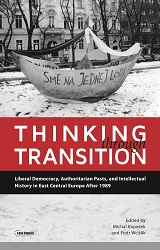


Keywords: Conference; NKVD; KGB; Secret Service; Central and East Europe; Soviet Union; 20th century; security;
The activity of Soviet security units, particularly State Security known throughout the world under the acronym of KGB, remains one of the most important subjects for 20th century research in Central and Eastern Europe. The functioning and operation of this apparatus, which surpassed the activities of the police in countries with democratic systems several fold, had a significant and direct influence on the shape of the totalitarian framework; the actions of party members of the Communist nomenclature; and the form, methods and extent of the repression of “class enemies” and, in the final instance, upon innocent representatives of various sociopolitical groups.
More...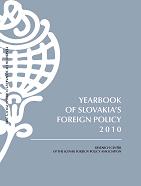
Keywords: embassy; EU; NATO; other countries; Slovakia;
More...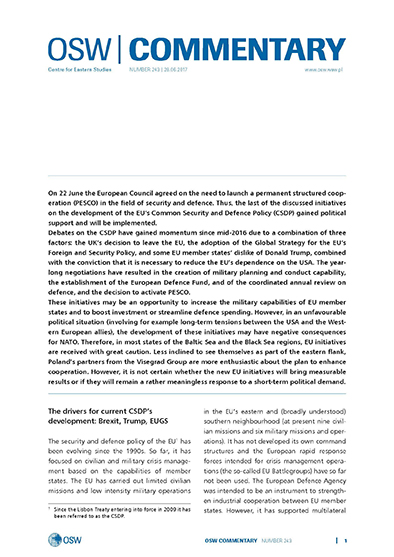
Keywords: Moldova; modernisation
There have been several significant changes on Moldova’s domestic political scene in the wake of the November 2014 parliamentary elections there. Negotiations lasted nearly two months and resulted in the formation of a minority coalition composed of two groupings: the Liberal-Democratic Party (PLDM) and the Democratic Party (PDM). New coalition received unofficial support from the Communist Party (PCRM), which had previously been considered an opposition party. Contrary to their initial announcements, PDLM and PDM did not admit the Liberal Party led by Mihai Ghimpu to power. Moreover, they blocked the nomination for prime minister of the incumbent, Iurie Leancă. Leancă has been perceived by many as an honest politician and a guarantor of reforms. This situation resulted in the political model present in Moldova since 2009 being preserved. In this model the state’s institutions are subordinated to two main oligarch politicians: Vlad Filat (the leader of PLDM) and Vlad Plahotniuc (a billionaire who de facto controls PDM).
More...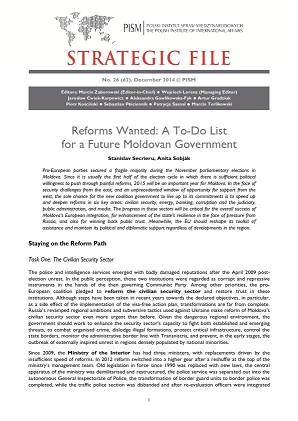
Keywords: Moldova; government reforms; security reforms; energy reforms; administration reforms; EU’s assistance;
Pro-European parties secured a fragile majority during the November parliamentary elections in Moldova. Since it is usually the first half of the election cycle in which there is sufficient political willingness to push through painful reforms, 2015 will be an important year for Moldova. In the face of security challenges from the east, and an unprecedented window of opportunity for support from the west, the sole chance for the new coalition government to live up to its commitments is to speed up and deepen reforms in six key areas: civilian security, energy, banking, corruption and the judiciary, public administration, and media. The progress in these sectors will be critical for the overall success of Moldova’s European integration, for enhancement of the state’s resilience in the face of pressure from Russia, and also for winning back public trust. Meanwhile, the EU should reshape its toolkit of assistance and maintain its political and diplomatic support regardless of developments in the region.
More...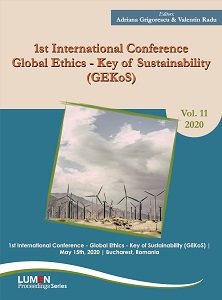
Keywords: financial market; CSR; financial education;
The financial market is in a process of metamorphosis, the international crises being determining factors in the reconfiguration process. In addition, the stakeholders attitude reshapes the different components of the financial markets. Financial consumers have become a force that requires financial institutions to adopt honest and ethical behavior. Portfolio investors also sanction, by specific methods, the inappropriate behavior of companies towards the environment or local communities or encourage listed companies that carry out corporate social responsibility (CSR) programs. The stock exchanges and the authorities that supervise and regulate the segments of the financial market are promoters of CSR, both through the power of the example and through specific programs. In this dynamic context, the article aims to carry out an analysis regarding the contribution of financial market actors on promoting the principles of sustainable development and the principles of Global Compact in national economies. The article focuses on the process of financial education in several European countries. The authors identified and analyzed five financial education platforms in selected European countries. The analysis of the statistical data reveals a low interest of financial consumers, especially from the countries from the former communist bloc.
More...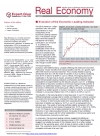
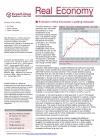
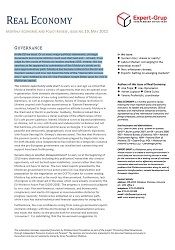
In the EU we trust. Or so many major political statements, strategic documents and crucial reforms could well start and end... at least, if we judge by the words of Moldovan leaders starting 2005. Indeed, the last year has so far appeared as culmination of the Moldova’s stride on its euro-approximation path: Moldova has become a Mecca for the EU and Western leaders and now can boast the title of the “democratic success story” aptly dubbed by the US Vice-President Joseph Biden upon his visit to Moldovan capital.
More...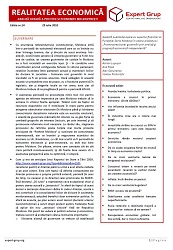
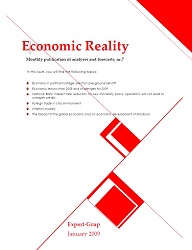
Political campaign began long before the Central Election Commission announced its official start. Party leaders and public officials started the rush in fall 2008, making generous social and economic promises to the public. However, at the moment the battle is given for the hesitant voters which according to social polls account for 40% of the population able to vote. Obviously, the ruling party possesses sufficient communication, administrative and budgetary tools to gain most of these votes. For this purpose the ruling party is considering many tactics,including the economic manipulation of the electoral behavior.
More...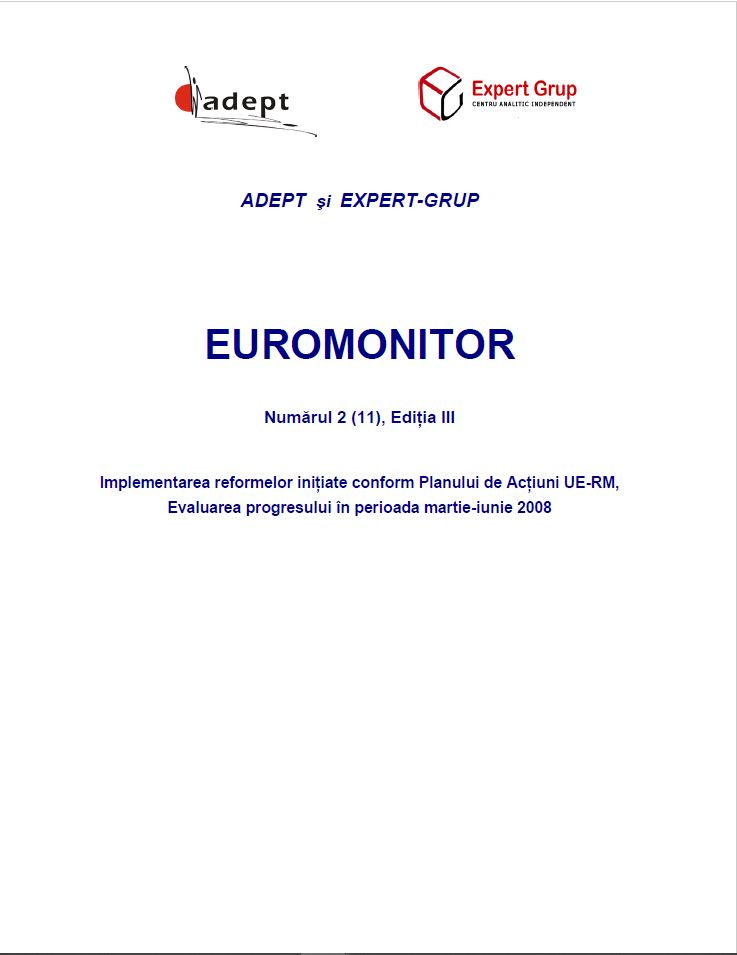
Keywords: Democratic institutions; Transnistria conflict; capacity of administration; juridical system; economic reforms; foreign trade; social development; human traffic; migration; border control;
The reports in the "Euromonitor" series aim at independent and objective monitoring of the implementation process of the Republic of Moldova - European Union Action Plan. The actions adopted and implemented by both signatories of the Plan will be monitored quarterly. The action plan is a complex document, structured in 7 chapters, which provides for the implementation of about 300 actions, some defined more or less precisely, others very ambiguous. Unable to monitor such a complex document, the authors of "Euromonitor" focused on priority actions, identified in the Action Plan itself.
More...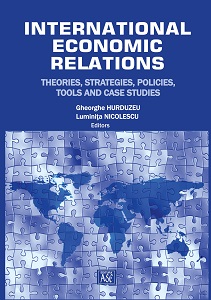
Keywords: international business; international economics; international management; international marketing; international finance
The volume has 22 chapters organized in four thematic parts: the first part includes elements related to the world economy system in the context of international economic relations, international organizations and global governance. The second part looks at the international environment and how this influences the international activity of a company. The third part focuses on the organization that operates at international level and how specific activities are conducted (negotiations, contracting, management, marketing, foreign trade operations, risk management and others). The last part, the fourth looks at recent challenges in the internationalization, such as innovation, technology, intangible economy and lobby.
More...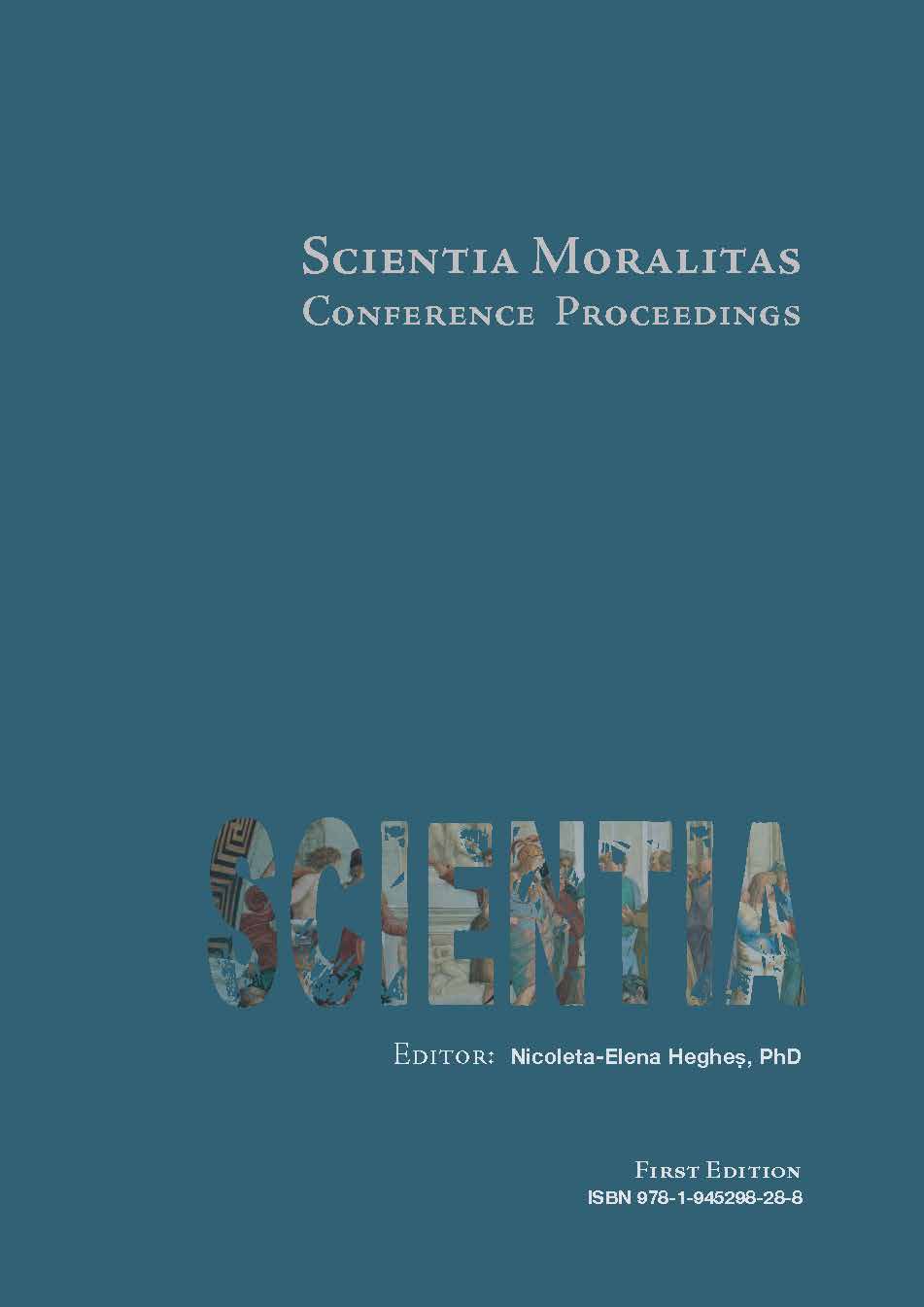
Keywords: children of the street; social communication;
Around this theme, regarding the “social communication of the street children” some prejudices have been created and a confusedly natured opinion war is going on, as well as the subject itself asks for a special analysis effort that has to be made with lucidity and profoundness, because it’s about a problem of distinct complexity. The Romanian society has been marked by the apparition of this “children of the street” phenomenon after 1990. The “children of the street”, as a nationally extended social phenomenon, is tied directly with the poverty rate in the different parts of the country. The main area where these children come from is Moldova (a third of the total number). The territorial indicator of poverty shows a concentration of poverty in the north-eastern part of the country (in Moldova). The poverty rate for this region is 40.61%, the highest in the country. The Romanian society has been marked by the sudden apparition of this phenomenon in the 1990 and by a raise in the number of children of the street. In 1990 there were 3500 children of the street registered, in 1995 there were 6000 and, in the present, there are over 8500 children at a national level. The children of the street represent the children category that live on the streets – a social phenomenon encountered widely everywhere in the world, but accentuated in the industrialized societies.
More...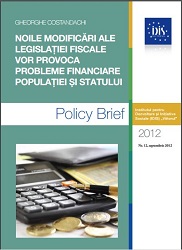
Keywords: tax-legislation in Moldova;
Moldova faces major tax problems. One of the problems of the tax system in the Republic of Moldova, which requires urgent solution, is tax evasion by individuals. This finding is brought from their own conclusions made in several studies and reports published by the Tax Service. Total annual tax losses on the full range of tax evasion are currently not estimated. The most widespread way of tax evasion is the intentional violation of tax law. This type of evasion can be committed consciously by the individual by concealing, from the tax service, income and wealth. In Moldova this type of evasion is used on the largest scale. The main factor is impunity…
More...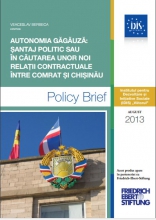
Keywords: federalism;
The special status of Gagauzia provides the autonomous territorial unit with large self-government competence. Thus, the Popular Assembly is the Gagauzia representative authority, which has been vested with the right to adopt normative acts within the limits of its competence. Also the population of this region elects for a 4-year period a Governor to whom all the Gagauzia public authorities are subordinated. Mention should be made that several important state positions in the territorial unit are nominated by the Popular Assembly, which is investing the local legislative body with an important role as far as the personnel policy of Gagauzia is concerned. Even if more than 18 years have passed since this political compromise between the centre and the Gagauz region was reached, periodically, conflict signs between the Chisinau and Comrat authorities emerge on different occasions. Over the last year though, the Gagauz political elite has expressed certain dissatisfaction which reminds about the events from the early ‘90s. A conflict is also made obvious between the most important institutions of the autonomy – the Popular Assembly and the Gagauzia Governor (Bashkan). The political fight within the autonomy has direct impact on the relations between the Comrat political elite and the central authorities. This interconnection complicates the situation in the autonomy as well as the relations between the region and the center. The modality of electing these two important institutions from Gagauzia- the Popular Assembly and the Governor (Bashkan) - is a permanent conflict element between the legislative and executive authorities in the situation when the majority in the local legislative and the Bashkan do not represent the same political formation. In other words, in contrast to the national legislation where the state president is elected by the Parliament, in the Administrative Territorial Unit (UTA) of Gagauzia, the members of the Popular Assembly and the Governor are elected directly by the population of the three rayons which make the Gagauz Autonomy.
More...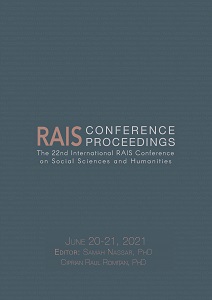
Keywords: criminal charge; contraventional law; decriminalization; mental incapacity;
In an interdisciplinary manner, through this study, we aim to highlight the outlook attributed by the European Court of Human Rights to the contravention area as a species of criminal law, the deeds characterized in the Romanian legislative system as contraventions enjoying the same treatment as any other criminal offence. We also capture the effects of the contraventional liability removal of certain deeds sanctioned by national law, in contrast to the operable decriminalization in penal law. Last but not least, having as research object, the comparative analysis of the particularities that characterize the Romanian contraventional law, we propose to debate some inadvertences for which the contraventional spectrum must be held to adapt to the accuracy imposed by the criminal law.
More...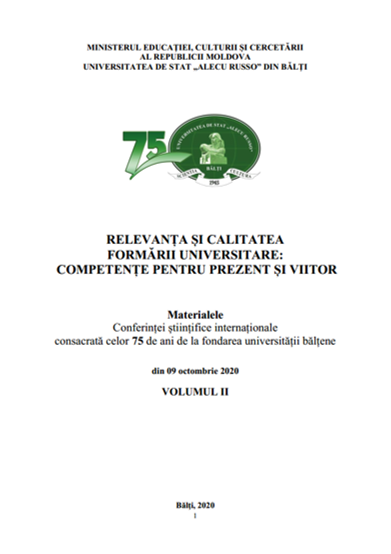
Keywords: creativity; creativity stimulation; child; contemporany time; methods
The subject of creativity is very often addressed by psychologists, pedagogues, scientists. It represents a major aspect in the development of contemporary personality. Nowadays, the cultivation of creativity is a necessity determined by the particularities of contemporary time. The current article will present a few psychological interpretations of creativity and the importance of creative stimulation
More...
Keywords: adolescents; self-image; body image; self-assessment; importance of appearance;
The article presents an experimental research of personality of adolescent women with eating problems. The research included 150 female teenagers aged 14, 15, 16, 17, 18 and 19 years. The EAT-26 questionnaire allowed us to highlight the attitude of adolescent women towards their own weight. Applying the test "How strong is the self-image?" of Mitrofan we have identified the degrees of contouring of the self-image. With the help of the "Self-assessment questionnaire" we determined how important self-assessment of body image in adolescents is. In order to establish how much importance teenage girls give to their physical appearance, we used the “Questionnaire on the importance of appearance”.
More...
Keywords: Banat; Timișoara; war; identity; modern age;
Anul 1716, când Eugeniu de Savoya cucerește Timișoara de la turci, inaugurează în istoria Banatului etapa imperială. Acum provincia va dobândi, din multe puncte de vedere, o fizionomie central-europeană. Desigur, este vorba în acest caz nu de un eveniment sau de o conjunctură, ci de un fenomen care ține de duratele lungi ale istoriei, o amplă mișcare în care s-au cuprins fluxuri și refluxuri, dar al cărei sens rămâne totuși unic.
More...